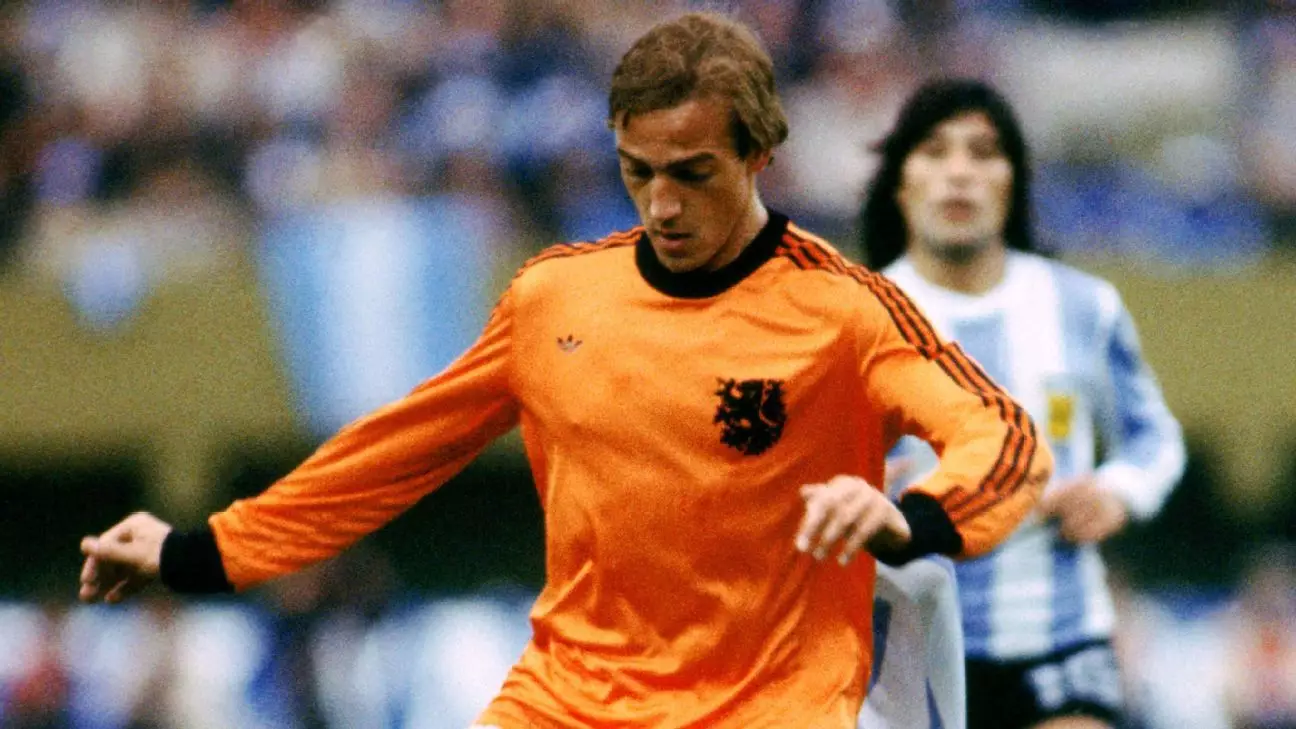The football world is mourning the death of Johan Neeskens, a central figure in the glorious history of Dutch football. Neeskens, who played a vital role in the iconic “Clockwork Orange” teams of the 1970s alongside the legendary Johan Cruyff, passed away at the age of 73 in Algeria, where he was engaged in a coaching project organized by the Dutch football association, KNVB. While the cause of death remains undisclosed, the impact of his loss resonates deeply across the globe. The KNVB expressed its grief, stating, “Words fail to capture the enormity and suddenness of this loss,” reflecting the profound sorrow felt within the football community.
Neeskens was more than just a skilled midfielder; he was a beacon of compassion and determination, renowned not only for his football prowess but also for his character. As the statements from both the KNVB and various clubs highlight, the football community is united in its grief, emphasizing that this loss transcends the realm of sports—it is a farewell to a beloved individual who touched many lives.
Neeskens’s career is emblematic of both the promise and heartache that accompanies the pursuit of greatness in sports. He participated in two World Cup finals with the Netherlands, both of which ended in heartbreak. In the 1974 final, his early penalty goal gave the Dutch a glimmer of hope against West Germany, only for that hope to extinguish in a 2-1 defeat. Reflecting on this experience, he poignantly remarked, “The most beautiful football doesn’t always win,” highlighting the bittersweet nature of the beautiful game.
Four years later, history repeated itself as the Netherlands fell short again, losing to Argentina after a grueling extra-time battle. The resilience Neeskens displayed in both these tournaments speaks volumes about his character and commitment to the game. This spirit, coupled with a unique playing style defined by teamwork and strategy, solidified his status as a pillar of Dutch football.
Achievements Beyond the International Stage
Neeskens’s legacy is not confined to the international arena; his club career is storied and remarkable. He made his mark playing for Ajax, where he won the European Cup three times during the team’s golden era in the early 1970s. His subsequent stints at prestigious clubs like Barcelona and the New York Cosmos further illustrated his exceptional talent and versatility as a player. Both Ajax and Barcelona have issued statements paying tribute to Neeskens, with Barcelona recalling him as a “blaugrana legend” whose memory will endure.
In addition to his achievements on the pitch, Neeskens later contributed to the sport as a coach. His philosophy emphasized the importance of teamwork and collective success, principles he articulated during a reunion of 1974 World Cup players. He stated, “You need each other on the field. You can only become a champion as a team.” This perspective resonates in football today, serving as a reminder of the vital role each player fulfills within a squad.
The legacy of Johan Neeskens transcends his on-field achievements. His embodiment of sportsmanship, humility, and dedication to the collective spirit of the game has left an indelible mark on both players and fans. As the football world reflects on his life, it is crucial to recognize not only his accomplishments but also the man behind the accolades—a compassionate individual who championed the values of teamwork and hard work.
The loss of Johan Neeskens serves as a poignant reminder of the fragility of life and the enduring impact individuals have on sports and society. As we gather to remember him, it is evident that his spirit will forever echo in the hearts of those who loved and respected him, ensuring that his contributions to the beautiful game will never be forgotten.

